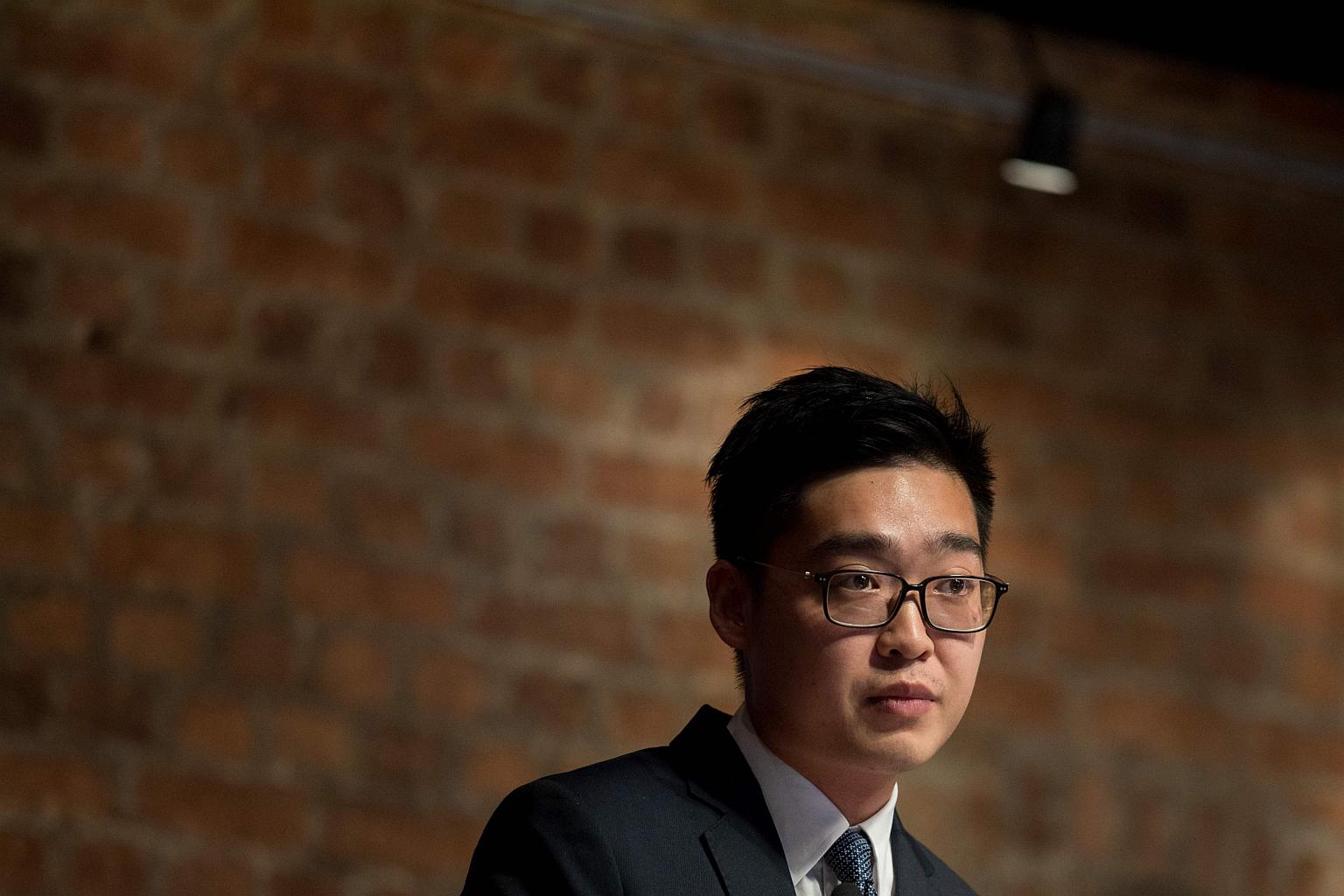Pro-independence National Party banned in Hong Kong, stoking fears of clampdown on freedom
Sign up now: Get insights on Asia's fast-moving developments

National Party's convenor, Mr Andy Chan, said that he had no response for the moment, according to RTHK News.
PHOTO: AFP
HONG KONG - In a contentious move viewed by some as a clampdown on freedoms in Hong Kong, the government has issued a ban on a pro-independence party - the first since the former British colony was handed back to China in 1997.
The decision to prohibit the operation of the Hong Kong National Party, whose declared goal is to make Hong Kong a republic, was announced in a government notice published on Monday (Sept 24).
Mr John Lee, Secretary for Security, told reporters: "In the course of achieving its aims, the Hong Kong National Party also spreads hatred and discrimination against mainlanders in Hong Kong."
The party had used the term "armed revolution", he said.
"It has also made it very clear that it will make use of all means to achieve its goals and this includes the option of using force."
The ban on the party, which the Hong Kong government had been mulling over since July, is based on the Societies Ordinance which allows the prohibition of groups for reasons of national security, public safety and public order. The colonial-era law was primarily used to target triads previously.
Mr Andy Chan Ho Tin, the party's co-founder and convener, told The Straits Times in August that he was "expecting an actual ban on our party" and said he had plans for different kinds of situations.
When approached on Monday, Mr Chan declined comment. His party has 30 days to appeal against the ban.
Mr Chan was in the news in August when he advocated for Hong Kong independence at the city's Foreign Correspondents' Club, which went ahead with the event despite a request from China's Foreign Ministry to cancel it.
On Monday, the Hong Kong and Macau Affairs Office of the State Council voiced resolute support for the ban, adding that the central government has zero tolerance for any organisations preaching Hong Kong independence, Xinhua news agency reported.
Speaking to reporters on Monday, Hong Kong's Mr Lee dismissed the notion that he had been influenced by the mainland authorities and stressed that citizens of Hong Kong continue to have freedoms, though these are not absolute.
He said the unregistered Hong Kong National Party has, over the past two years, taken action to achieve its goal of making Hong Kong independent from the mainland.
The party had tried to enter the 2016 Legislative Council election and had infiltrated schools to recruit members and to win support for its goals, he added.
As to whether other pro-independence groups are also under review, Mr Lee said that enforcement agencies "will act according to the law to deal with the situations".
Professor Willy Lam of the Chinese University of Hong Kong told ST that other anti-Beijing parties, such as the Hong Kong Indigenous, Hong Kong National Front, Demosisto and Hong Kong Alliance, may be next in line to be scrutinised by the authorities.
There are also fears that the ban will intimidate moderate pro-democracy parties such as the Democratic Party - the city's biggest opposition party.
Still, Prof Lam said: "At this stage, they don't have the legal justification to incriminate or to threaten other pro-democracy parties until Article 23 is passed and of course, you have to wait and see the wording of Article 23."
Prof Lam said the ban is also meant as a step towards ensuring a smoother roll-out of Article 23, which he believes would be introduced before Chief Executive Carrie Lam's term ends in 2022.
Under Article 23 of the Basic Law, the territory's mini Constitution, Hong Kong must enact its own national security legislation to prohibit treason and subversion against Beijing.
Article 23 has been a political hot potato for the Hong Kong government, whose last attempt to enact the legislation prompted half a million people to take to the streets in protest on July 1, 2003. The Bill was subsequently shelved.
Article 23 has been a political hot potato for the Hong Kong government, whose last attempt to enact the legislation prompted half a million people to take to the streets in protest on July 1, 2003. The Bill was subsequently shelved.
Mrs Lam has previously hinted that national security legislation would come sooner rather than later.


